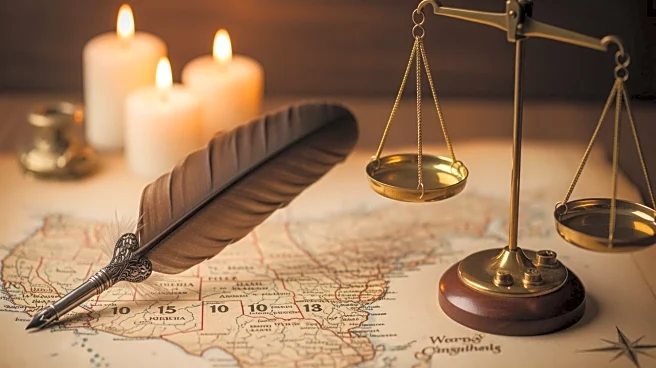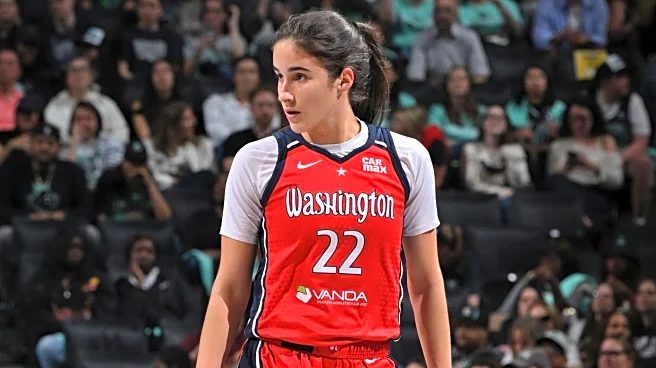What's Happening?
Amon-Ra St. Brown, a wide receiver for the Detroit Lions, carries a name inspired by Egyptian mythology, specifically the sun god Amon-Ra. This naming tradition extends to his brothers, Equanimeous and Osiris, who are also named after Egyptian deities. The St. Brown family believes in the power and significance of names, which is why Amon-Ra's father chose names that symbolize strength and power. Amon-Ra's full name is Amon-Ra Julian Heru John St. Brown, with Heru representing the Egyptian sky god. The 'St.' in their last name was added later, not originally part of the family name. This unique naming convention has become a distinctive feature of Amon-Ra's identity, contributing to his recognition in the NFL.
Why It's Important?
The naming tradition of Amon-Ra St. Brown highlights the cultural diversity and personal beliefs that can influence identity in professional sports. It underscores how personal heritage and family values can play a significant role in shaping public personas. For the NFL, players like Amon-Ra bring unique stories and backgrounds that enrich the league's cultural tapestry, potentially attracting a broader audience interested in the diverse narratives of its athletes. This can enhance the league's appeal and marketability, as fans often connect with players on a personal level beyond their athletic performance.
What's Next?
As Amon-Ra St. Brown continues to excel in his NFL career, his unique name and background may lead to increased media attention and fan interest. This could result in more opportunities for endorsements and collaborations that celebrate his heritage. Additionally, his story might inspire other athletes to embrace and share their cultural backgrounds, fostering a more inclusive environment within sports. The Lions and the NFL could leverage this diversity to promote cultural awareness and inclusivity initiatives, further enhancing the league's image and community engagement.
Beyond the Headlines
The story of Amon-Ra St. Brown's name reflects broader themes of identity and cultural heritage in sports. It raises questions about the influence of personal beliefs on public personas and how athletes navigate their cultural identities in a globalized sports industry. This could lead to discussions on the importance of cultural representation and diversity in sports, encouraging leagues to support initiatives that celebrate varied backgrounds and stories. Such efforts can contribute to a more inclusive and culturally rich sports environment.











